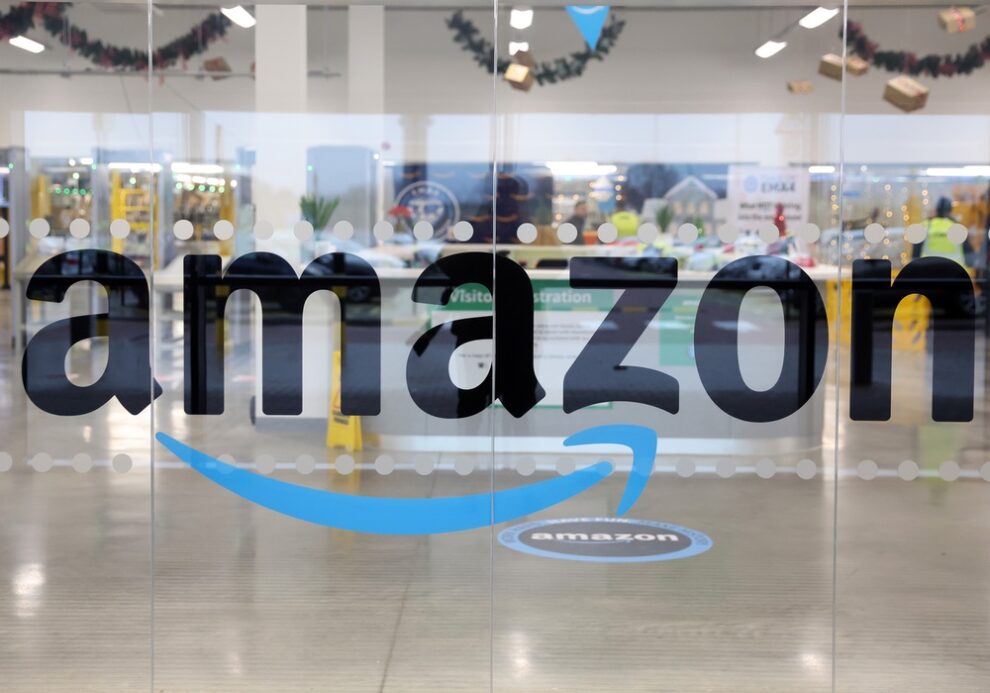
It’s become a Black Friday tradition almost as hallowed as the predawn crowds of bargain hunters outside Best Buy or Target: During one of busiest shopping seasons of the year, thousands of Amazon workers in more than 20 countries, including major cities across the United States, United Kingdom, Brazil, Germany and Japan, will be striking to demand action on labor rights and climate targets.
The “Make Amazon Pay” movement’s “days of resistance,” which are poised to run from Nov. 29 through Dec. 2, will mark the UNI Global Union and Progressive International-helmed undertaking’s fifth go-around. Since 2020, it has amassed the participation of more than 30 workers’ unions, environmental organizations and civil society groups.
This year’s demonstrations will see thousands of warehouse workers from the German cities of Bad Hersfeld, Dortmund, Graben, Koblenz, Rheinberg and Werne head for the picket lines. Amazon packaging and shipping employees in New Delhi will be rallying over what they say was a disregard for worker wellbeing during a brutal heatwave that sent temperatures soaring past 122 degrees Fahrenheit in July.
In Bangladesh, garment workers will be swarming the streets to call on the e-tail Goliath to sign the International Accord for Health and Safety in the Textile and Garment Industry, the successor to the Accord on Fire and Building Safety in Bangladesh that coalesced following the deadly collapse of Rana Plaza in 2013. Over in France, the Association for the Taxation of financial Transactions and Citizen’s Action will be hitting the sidewalks of several cities to urge Amazon to pony up its “fair” share of taxes.
“Amazon’s relentless pursuit of profit comes at a cost to workers, the environment and democracy,” said Christy Hoffman, general secretary of UNI Global Union, which is based in Switzerland. “[Jeff] Bezos’s company has spent untold millions to stop workers from organizing, but the strikes and protests happening around the world show that workers’ desire for justice—for union representation—can’t be stopped. We stand united in demanding that Amazon treat its workers fairly, respect fundamental rights and stop undermining the systems meant to protect us all.”
Eileen Hards, an Amazon spokesperson, said that the groups represent a “variety of interests” and while it’s “always listening and looking at ways to improve,” it remains proud of the “competitive pay, comprehensive benefits and engaging, safe work experience” it provides its employees. Even so, the Whole Foods owner’s reputation for resisting its workers’ efforts at organizing—sometimes aggressively so—isn’t unfounded.
Earlier this month, lawyers for Amazon stood in federal appeals court questioning the constitutionality of the National Labor Relations Board, which has challenged the e-commerce juggernaut for what it describes as the improper influence of unionization elections through the now-banned “captive audience” meetings, including at an Alabama warehouse that a federal judge ruled should get a third opportunity to vote. In September, the board issued Amazon with a complaint charging it with using unfair labor practices to interfere with the organizing efforts of California Delivery Service Partner drivers represented by a Teamsters Local in Palmdale despite being legally bound to recognize and bargain with the union as a joint employer.
On Tuesday, Amazon drivers at its DGT8 facility in Atlanta also formed a union with the Teamsters, which they demanded recognition of in a “March on the Boss” held in the morning. They said that they’re fighting for better pay, safe working conditions and a “voice on the job.”
“Amazon workers deserve so much more from a company that makes billions of dollars in profits every year,” said Trent Knight, an Amazon Teamster at DGT8. “Many of us can barely afford to pay our bills and make rent each month, yet we’re the reason Amazon is one of the most profitable companies in the world. With this union, we’re taking a step to finally get the pay, benefits and respect we deserve.”
Hards pushed back, saying that the Teamsters are “continuing to intentionally mislead and misrepresent” the facts. “The truth is that there are multiple independent small businesses that deliver on our behalf from this facility, and none of them are Amazon employees,” she said.
Workers in Canada, Germany and the United Kingdom are likewise facing intimidation and retaliation for exercising their right to unionize, “Make Amazon Pay” said. It also pointed out that Amazon had to correct its declared European Union lobbying expenditure for 2023 following complaints by several transparency organizations that it was underreporting the figure by millions of euros, and that the company’s apparent refusal to participate in public hearings led the European Parliament—Amazon refutes this—to revoke its lobbyists’ permanent access badges in February.
“Amazon is everywhere, but so are we,” said Varsha Gandikota-Nellutla, co-general coordinator at Progressive International, an activist “mobilization” platform with more than 70 member groups under its wing. “By uniting our movements across borders, we can not only force Amazon to change its ways but lay the foundations of a world that prioritizes human dignity, not Jeff Bezos’ bank balance.”








